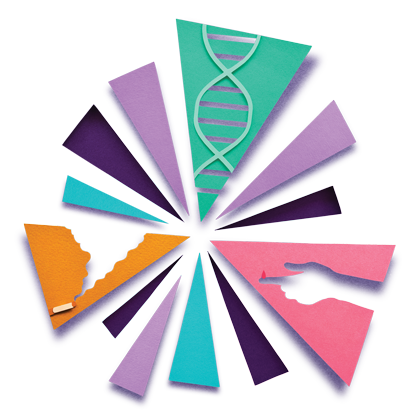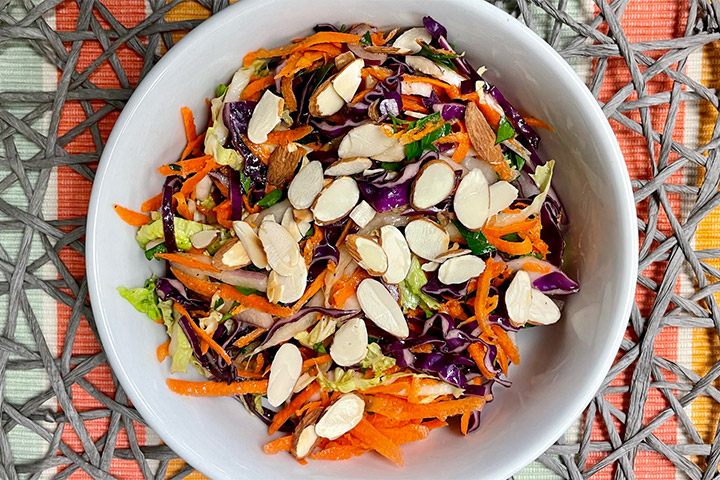Why Pancreatic Cancer Can Mess with Your Blood Sugar (and What to Do About It)

If you’ve been diagnosed with pancreatic cancer, chances are you’re struggling with blood sugar control—whether you’ve noticed it or not. A likely culprit: insulin resistance.
“Insulin resistance happens when your body’s cells stop responding to insulin effectively,” says Linda Nguyen, B.S.N., R.N., C.D.C.E.S., a clinical educator in the Department of Diabetes, Endocrinology & Metabolism Care Team at City of Hope, Duarte, California. And since the pancreas is the organ that makes insulin, it’s no surprise that pancreatic cancer can mess with those mechanics.
What Exactly Is Insulin Resistance?
Insulin is a hormone that helps move sugar (glucose) from your blood into your cells, where it’s used for energy. In fact, insulin is a key player in stabilizing blood sugar levels. “When your cells stop responding to insulin properly, the pancreas keeps pumping out insulin in an attempt to keep blood sugar levels steady,” says Nguyen.
But if your pancreas is already compromised by cancer, it might not be able to keep up. That’s when blood sugar can start to rise—and insulin resistance becomes a larger problem.
What Can You Do About It?
There are simple steps you can take to help your body respond better to insulin—no matter where you are in your treatment journey.
- Eat small, frequent meals.Weight gain can contribute to insulin resistance, but with pancreatic cancer, people frequently face the opposite problem: unintentional weight loss. The key is to keep your blood sugar steady by spreading meals throughout the day. “Even if your appetite is off, eating balanced meals every few hours can help prevent sugar spikes,” explains Nguyen.
- Pump some iron. You’ve heard it before: Exercise is good medicine. But strength training in particular makes your cells more sensitive to insulin. “When your muscles contract, they pull sugar out of the blood to use as energy,” Nguyen says. That doesn’t mean you need to lift heavy weights. Try light resistance bands, bodyweight movements, or even repeated sit-to-stands from a chair.
- Choose whole foods. When you’re sick or exhausted, a box of crackers may be the easiest option. But ultra-processed foods like packaged snacks, sweets, and white bread can cause your blood sugar to spike and crash. Your best bet: meals that center around protein (like eggs, meat, tofu) and produce (fresh, frozen, or cooked all count).
- Prioritize sleep (but don’t overdo it). Sleep is when your cells rest, recover, and reset. Poor or disrupted sleep, whether from steroids, stress, or side effects, can increase insulin resistance. “Aim for seven to nine hours a night,” says Nguyen recommends. “But avoid oversleeping, since that can also impact blood sugar control.”
- Manage stress. Stress triggers a surge in cortisol, a hormone that makes it harder for your body to control blood sugar. And let’s be honest—cancer is stressful. Find small ways to lower your stress levels each day: take a few deep breaths, try a gentle yoga class, or meditate. Even five minutes of quiet time can help reduce cortisol levels.
How Do You Know if You’re Insulin Resistant?
Insulin resistance doesn’t always cause obvious symptoms, but here are a few signs that might pop up:
- Feeling unusually thirsty or hungry
- Gaining weight (especially around your middle)
- Feeling tired or sluggish
- Trouble focusing or brain fog
Unlike diabetes, insulin resistance doesn’t have clear-cut criteria for a diagnosis. Instead, doctors rely on a combination of tests, including fasting blood glucose, A1C, or a glucose tolerance test—where they monitor how your body responds to a sugary drink. If insulin levels shoot up, that’s a sign your cells are resistant to insulin.
How Does Treatment Impact Insulin Resistance
“If you’re navigating pancreatic cancer, it’s important to understand that your blood sugar might be affected,” Nguyen stresses. “Insulin resistance can develop before or during treatment—and sometimes, it resolves as your body heals.”
No matter where you are in your treatment journey, taking small, daily steps—like eating balanced meals, moving your body, and getting enough rest—can go a long way toward helping your body respond better to insulin.
Something to Keep In Mind
Studies show that blood sugar changes don’t just happen alongside pancreatic cancer; they may also play a role in how the disease manifests. New-onset diabetes, especially over age 50, and well-controlled diabetes that suddenly changes are both considered symptoms of pancreatic cancer.






